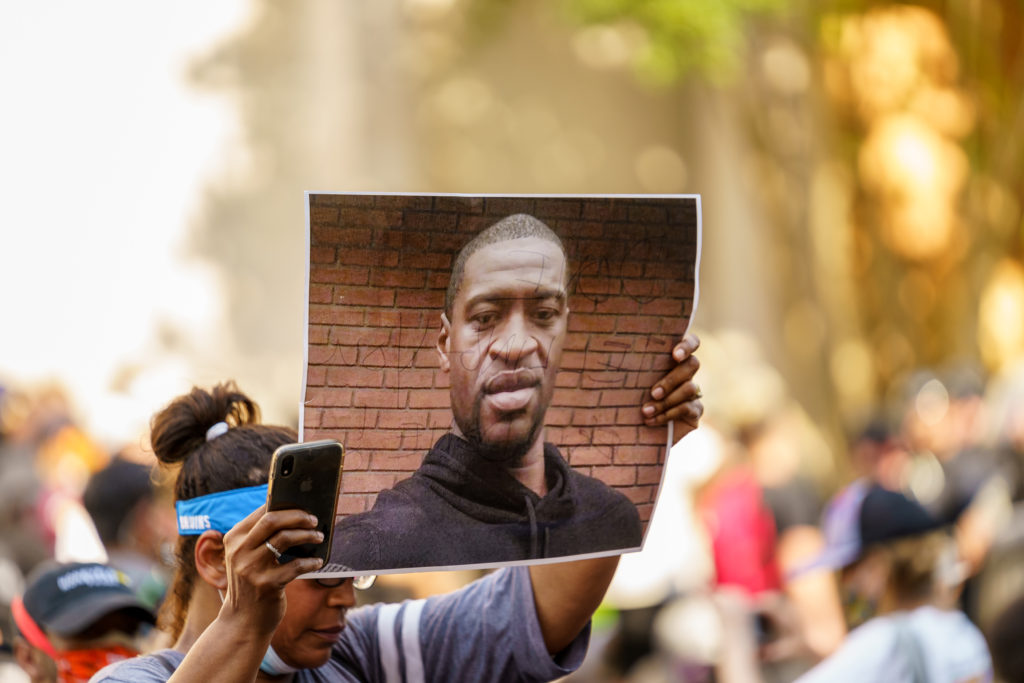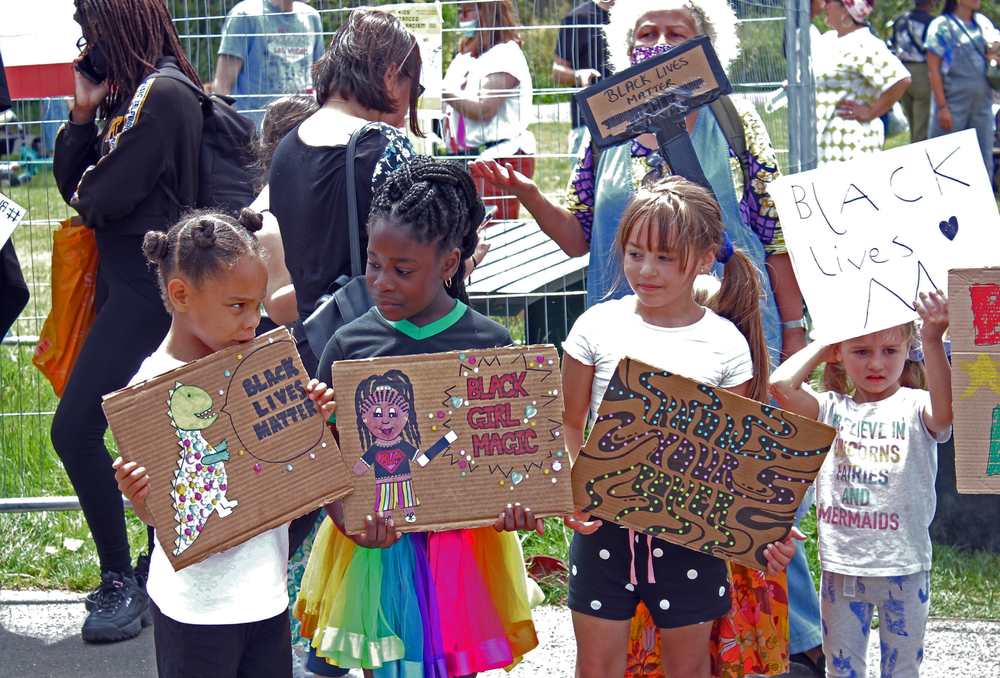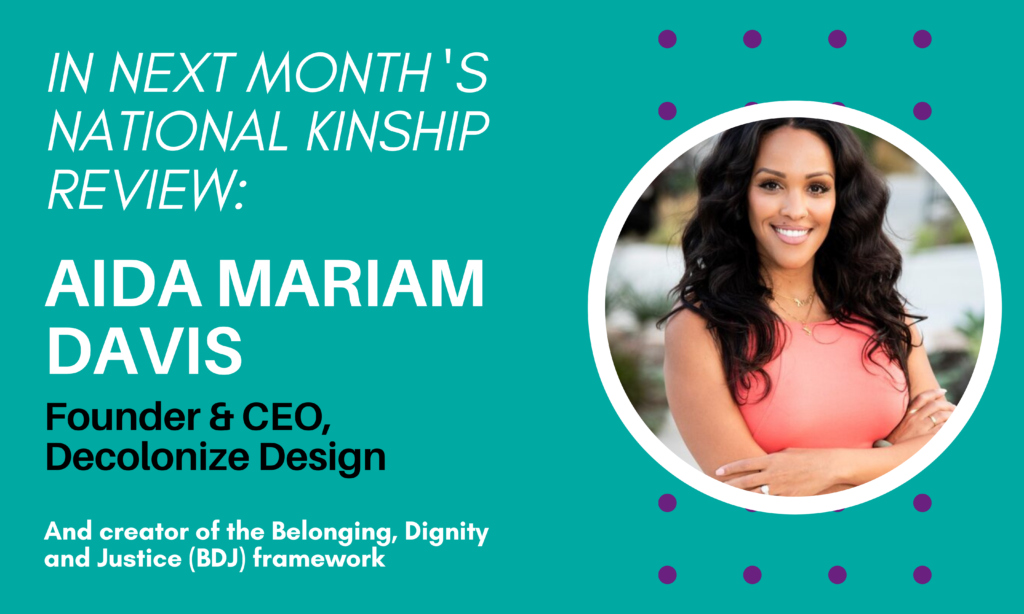Blog
Reflections One Year After the Murder of George Floyd
Last month, the world witnessed the conviction of former Minneapolis police officer Derek Chauvin for the murder of George Floyd. While many were relieved after hearing the guilty verdict, this bittersweet victory left us asking ourselves, “What is justice?” Settling for Chauvin’s guilty verdict as “justice served” diminishes the trauma inflicted on Black Americans having to witness his murder, yet again, and the racist rhetoric used to justify it, all while hoping, praying and wishing that this country could hold its justice system accountable. The anti-Black violence embedded in American systems perpetually harms and claims the lives of Black children, families and communities, and will not end with the conviction of one police officer. This was not the end for us, yet it’s a small victory in the long fight toward belonging, dignity and justice for Black people in America.

The murder of George Floyd opened the world’s eyes to the heinous, frequent injustices Black Americans have endured for centuries. However, it is unjust to use his murder as a staple of martyrdom and catalyst toward social justice for people of color without addressing the root of anti-Blackness within all American systems. Over the last year, we have seen a shift in the prioritization of social justice and the calling out of racism by companies, organizations and systems at large. While many of these attempts may be well-intentioned, addressing the issue of racism with generic, dated and ineffectual Diversity, Equity and Inclusion (DEI) initiatives diminishes the larger issue at hand, and when not done properly, acts as a temporary band-aid merely addressing the immediate need to look like action is being taken. Thus, a deeper understanding of dignity and humanity is truly needed to begin to dismantle the culture of white supremacy rooted in American systems. Yet, we continue to see how child welfare has left Black families dehumanized, devalued and ultimately seen as less worthy of existing as families. When the lives of Black parents are valued, their children’s lives are valued, and families can remain whole.
“For Black and Indigenous people, dignity is the actionable affirmation of a person’s inviolable and sacred personhood—a quintessential value for oppressed people who have experienced centuries of dehumanization and discrimination,” explains Aida Mariam Davis, founder of Decolonize Design and creator of the Belonging, Dignity and Justice (BDJ) framework. “The particular nuance of this definition—that dignity is the actionable affirmation of personhood—is grounded in the systemic, intergenerational oppression experienced by Black and Indigenous people, as a way to emphasize the intentional effort to recognize the dignity of people who have been denied it historically in Western cultures.”

For Davis, rather than focusing on a checklist of “transactional and performative changes” through DEI initiatives, BDJ creates a culture that allows everyone to reach their full potential and thrive. Such a framework allows individuals as part of larger systems to not solely reflect on their personal implicit biases and their implications; it allows the voices and experiences of those most marginalized to be uplifted in order to create a relational atmosphere of belonging.
As an agency, we are driven by our core values of conviction, dignity, respect and honesty to remain committed to equitable practices and inclusion in order to empower families. Moreover, our commitment to ensuring all families maintain their dignity—as human beings first —exemplifies our dedication to justice for children and families and helping them to thrive together.
As we move forward as an organization and a nation, we must continue to remember George Floyd; not as a martyr, not as the “face of the movement,” not as another hashtag, but as a father, a son, a friend…a man whose Black life mattered and was worthy and meant to be lived.
